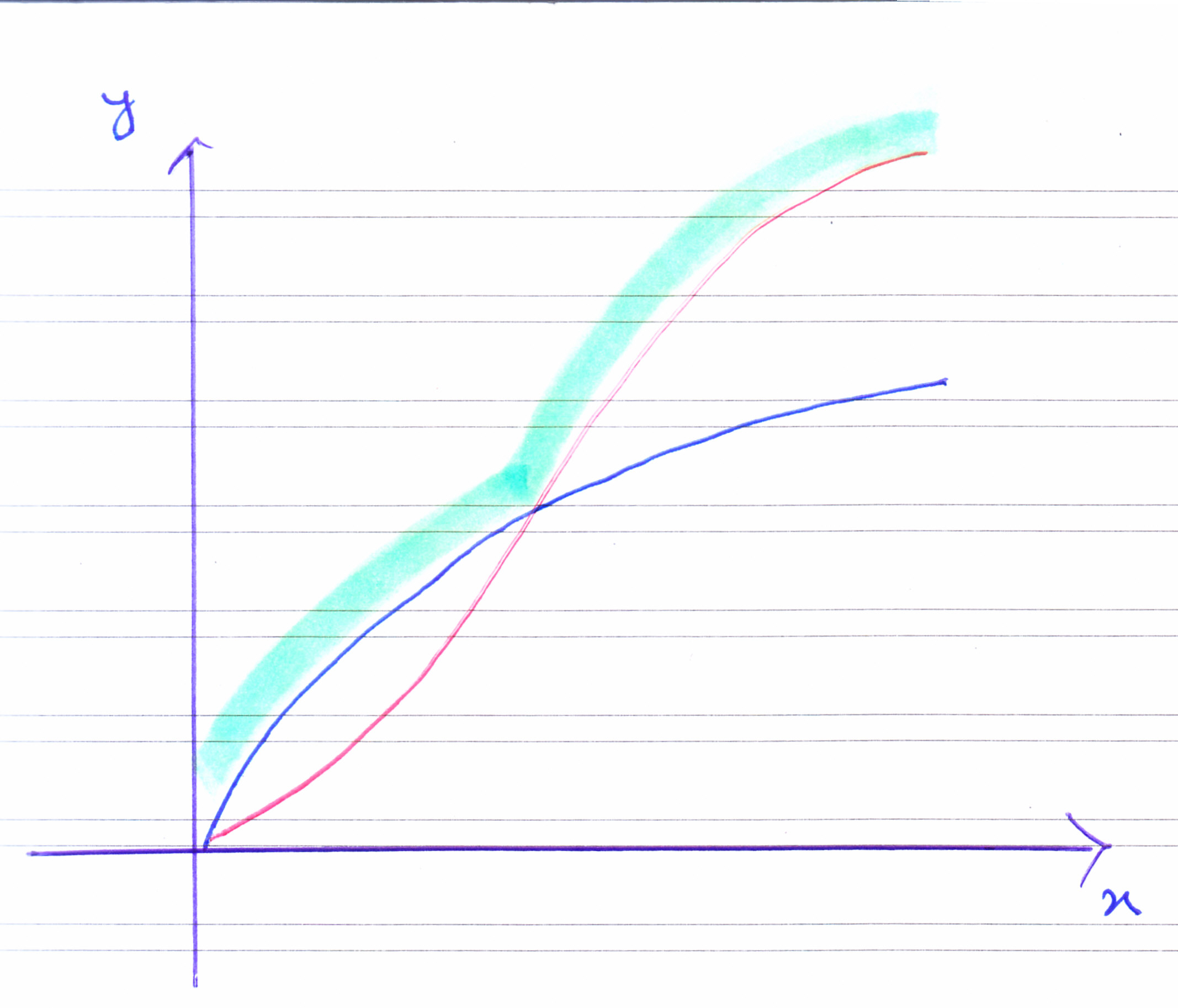Suppose I have two functions f(x,y)=1 + 2*x +3*y^3 and g(x,y)=y + x^2. I want to have maximum function of {f(x,y)+g(x,y), f(x,y)*g(x,y)} on 0<=x<=1.
For example to two functions of one variable: I need criterion of green function in the following picture:

I want to create a new function, such as h[x_,y_]:=Max[f[x,y]+g[x,y],f[x,y]*g[x,y]]

t? What does "have maximum function" mean? Do you want to create a new function, such ash[x_,y_]:=Max[f[x,y]+g[x,y],f[x,y]*g[x,y]]? Or do you want a function ofygiven constrained maximization overx? Or do you just need to graph something? $\endgroup$